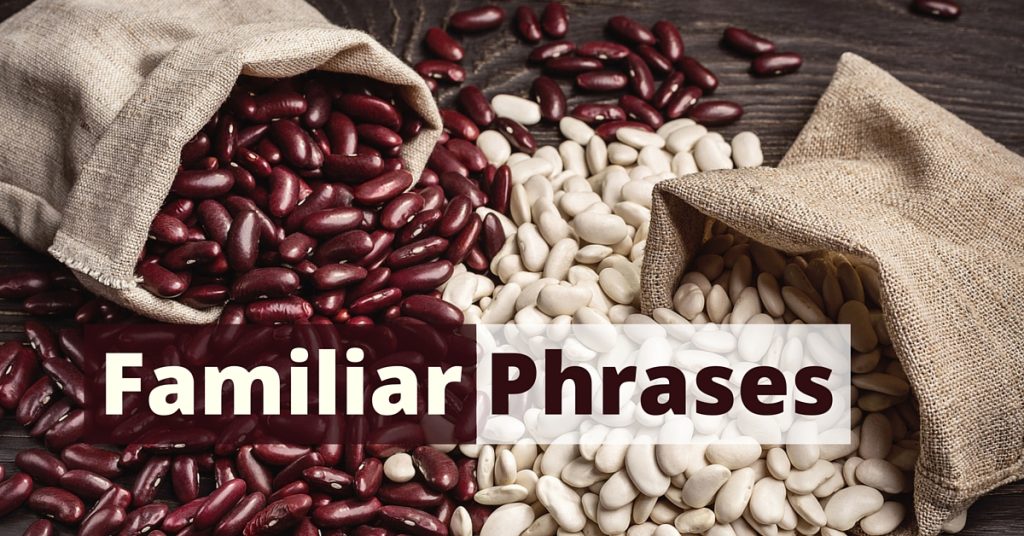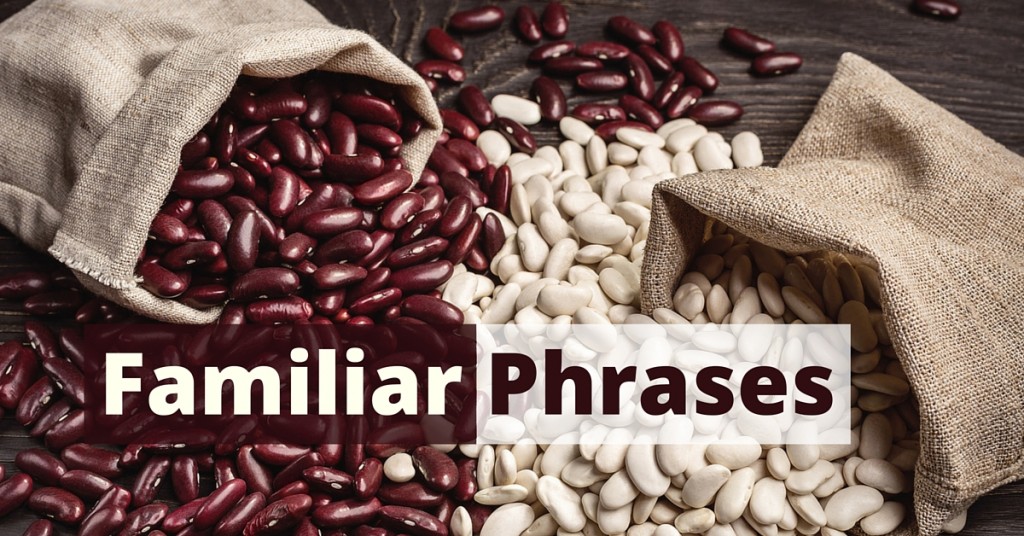Hungry for some word play? You’ll eat up these juicy origins of popular phrases.
Spill the Beans
Meaning: To give away a secret
Origin: “A tradition that began in ancient Greece for electing a new member to a private club was to give each existing member one white and one brown bean with which to cast their votes (white was ‘yes’; brown was ‘no’). The beans were then placed in a jar and then counted in secret by an official. The prospective member would never know how many people voted for or against him. Unless, that is, the jar was knocked over before the secret count and the beans spilled. Then the members’ secret would be out.” (Red Herrings & White Elephants, by Albert Jack)
To Egg One On
Meaning: To persistently urge someone to do something
Origin: “Following the Norman Conquest, Anglo-Saxon peasants were treated brutally. Roped or chained together, they were often driven from place to place like cattle. Many prisoners were urged to move faster by a poke of their captor’s spearpoint, or ecg. Later, children listened as their elders told of having been “ecged on” in this fashion. Tradition kept the stories alive long after Anglo- Saxon ceased to be spoken, with the result that later generations referred to their ancestors as having been egged on.” (I’ve Got Goose Pimples, by Marvin Vanoni)
Eat, Drink, and be Merry
Meaning: To feast and not worry about life’s problems
Origin: “This phrase has its roots in the Bible, where, in Ecclesiastes 8:15, we read: ‘A man hath no better thing under the sun, than to eat, and to drink, and to be merry.’ There is a further reference in Isaiah 22:13, ‘Let us eat and drink; for tomorrow we may die.’” (Everyday Phrases—Their Origins and Meanings, by Neil Ewart)
In a Pickle
Meaning: To be stuck in a difficult situation
Origin: “From in de pikel zitten, a Dutch phrase going back four centuries, literally meaning to sit in a salt solution used for preserving pickles, an uncomfortable or sorry plight.” Dante used the idiom in his Divine Comedy; Shakespeare used it in The Tempest (“How camest thou in this pickle?”). It’s now also used to describe the sorry plight of a baseball player caught in a rundown between two bases.” (Encyclopedia of Word and Phrase Origins, by Robert Hendrickson)
Easy as Pie
Meaning: Simple to complete
Origin: This phrase came from Australia, by way of New Zealand, in the 1920s. When someone was good at something, they were considered “pie at it” or “pie on it.” For example, a good climber was “pie at climbing.” Although the modern phrase is associated with pie (the dessert), it is actually derived from the Maori word pai, which means “good.”
The Proof is in the Pudding
Meaning: Wait to pass judgement until a task is actually completed
Origin: “In its full wording this old English proverb runs, ‘The proof of the pudding is in the eating’—with ‘proof’ meaning ‘test’ rather than its normal sense of ‘verifying that something is true.’ The expression has a long history in English, with recorded versions dating from the beginning of the 14th century. From that time until the present, it has remained unaltered.” (Bringing Home the Bacon & Cutting the Mustard, Castle Books)
Out of the Frying Pan and into the Fire
Meaning: To escape one danger, only to land in another
Origin: “This expression is common to many languages; dating to the 2nd-century Greek equivalent, ‘out of the smoke into the flame.’ Its English usage is traceable to an ongoing religious argument in 1528 between William Tynedale, translator of the Bible into English, and Sir Thomas More, who wrote that his adversary ‘featly conuayed himself out of the frying panne fayre into the fyre.’” (Hog on Ice & Other Curious Expressions, by Charles Earle Funk)









